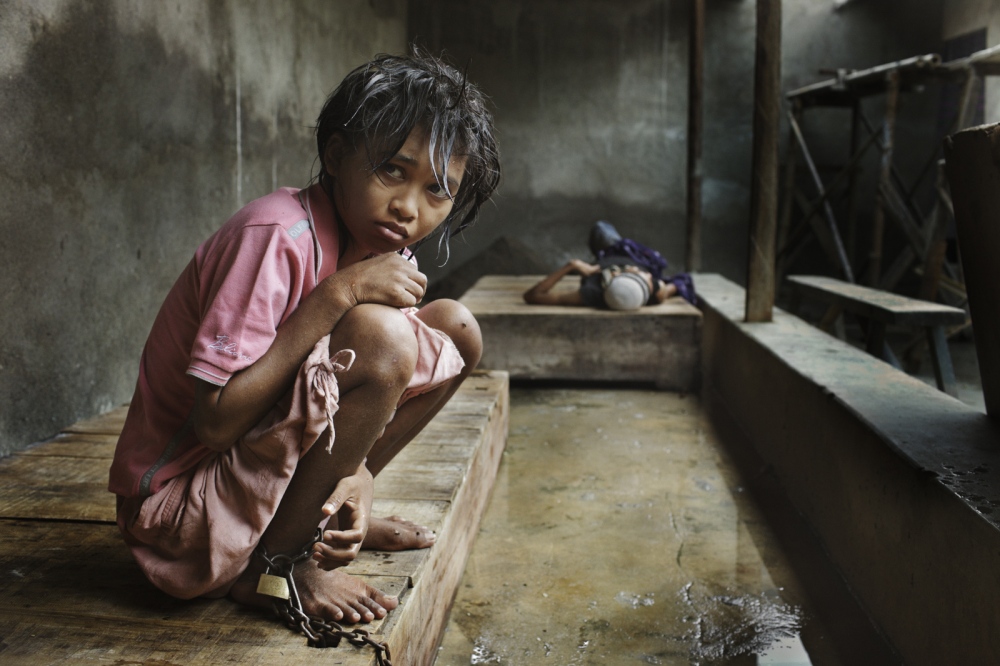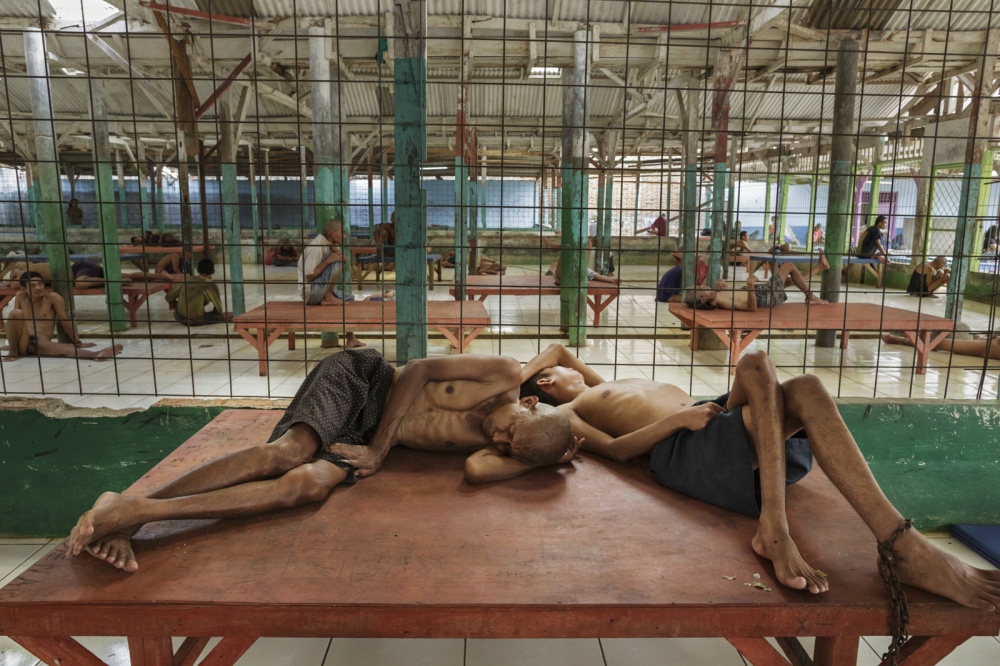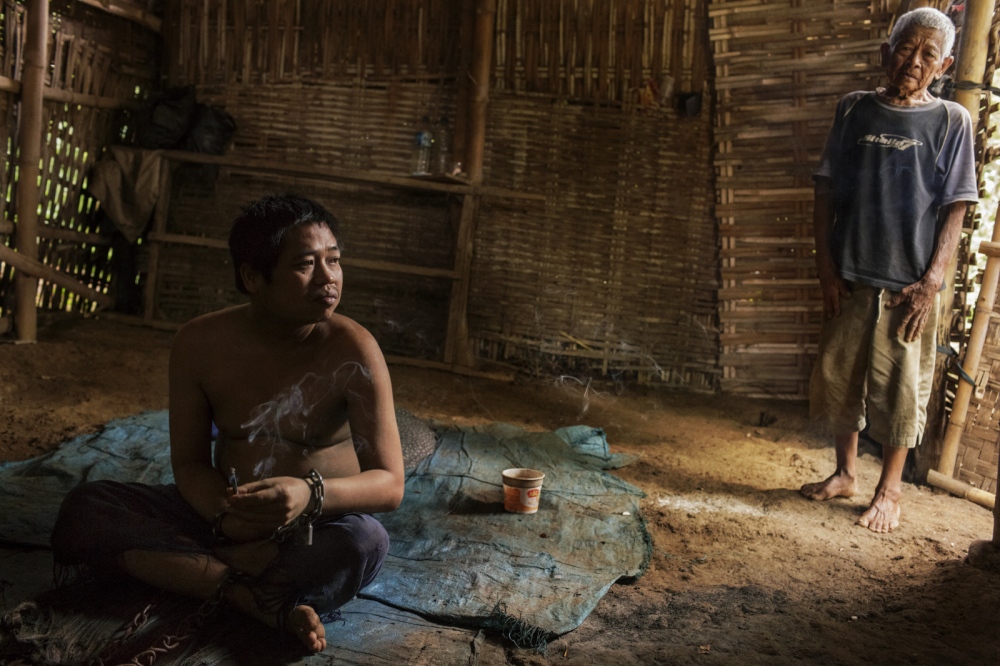DISORDER_2011-Â2016 (ongoing)_ is a documentary photo-reportage concerning abuse against people with psychosocial disabilities in Indonesia:
PERSONAL NOTES: For five years I have been visiting and revisiting homes, shelters, hospitals, and searching Indonesia's streets for people dealing with a psychosocial disability. In most cases I find the men and women I photograph by visiting communities and asking questions. My practice is to photograph unsupervised and alone with the people I document including any work used by Human Rights Watch. Walking through the door is easy. It is leaving that is hard. Shackling has been banned in Indonesia for 39 years. The men and women held in pasung are waiting and it is time.
March 21, 2016, Human Rights Watch presented a report to Indonesia's government that included my photographs. In mid April, "Indonesia's Minister of Health, committed to providing mental health medications in all 9,500 community health centers (puskesmas) across the country. "Achieving this could turn the tide against shackling" wrote Kriti Sharma, HRW investigator. However, despite the subsequent International response to 2016 HRW Report, despite actions by Indonesia's Ministry of Health, and the relentless efforts of Indonesia's Mental Health professionals and activists, "little has changed" according to Andreas Harsono, Indonesia's researcher for Human Rights Watch September 9, 2016.
While my primary focus is continuing to document (visiting and revisiting) men and women with psychosocial disabilities, additional plans include exhibiting this evidential work at Indonesia's Parliament in partnership with Human Rights Watch and local NGO's. I also want to develop a set of informational posters designed for community clinics and a simple PSA for broadcast use because basic information is lacking throughout the country. Finally I want to address and include caregiver/mental healthcare worker burnout. I am in contact with activists that have experienced suicidal thoughts, and family members/shelter caregivers haunted by failure. As long as reform remains sluggish or stalled I remain a photojournalist reporting on an issue that in Indonesia has come to rest on the edge of a window of opportunity and sits there waiting.
Pasung is the Indonesian term for shackling. It can also refer to being kept in chains, stocks or locked in a room, cell, or pen. Initially banned in 1977, pasung is the widespread traditional response to mental disorders throughout Indonesia and it is an act of desperation. Caregivers resort to pasung when they cannot afford care, fear medications and addiction, want to avoid the stigma attached to a diagnosis of mental illness or most commonly, feel it is necessary to protect family, community, as well as the disturbed individual. Indonesia is estimated to have over 19 million people with psychosocial disabilities. Even with the passage of the 2014 Mental Health Law, effective regional programs continue to be rare and underfunded. Common obstacles for Indonesians include access to care, cost of seeking treatment, and the lack of basic information. Indonesia has about 48 mental health institutions and roughly 600 to 800 psychiatrists. More then half of the psychiatric hospitals are in four of the country's 34 provinces, while eight provinces have no psychiatric hospitals at all. Of Indonesia's psychiatrists, half are based in Java, and half of them practice in Jakarta. Needed prescriptions can be unavailable for months due to shortages. Patient compliance and lack of family support can also lead to treatment failure. A new development is the multi-billion dollar deficit affecting Government Health Insurance. Lacking reimbursements, doctors have begun to charge patients additional costs that families are unable to pay. People who have survived pasung worsen, are locked away and chained. To further complicate efforts for reform the Department of Health oversees mental hospitals while shelters for the mentally ill are the responsibility of a separate department.
And furthermore, Shamans and traditional healers continue to remain the popular choice of mental health care throughout the country. For Indonesian's, it is better and cheaper to attribute confusing or abnormal behavior to spiritual weakness, spells or possession. There is no stigma attached to being under a spell or possessed.
Inadequate access to the medications and treatments commonly available throughout much of the world has devastating consequences. Many people don't even know they can get better.
























